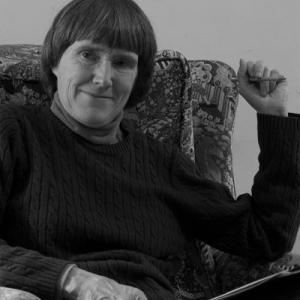Teaching Philosophy
In Laura’s classes, students honed sentence-level skills, but they also develop analytical and creative abilities by reading widely and critically. The combination of skills is essential, she says. “If you can’t express what you want to say, it doesn’t matter whether you know it or not, but in order to express it coherently, you have to know what you mean—and there’s the rub.”
“You can teach people not to write badly,” says Laura, “but you can’t teach them to write well. Good writing is so closely attached to personal perceptions and thinking styles that once you’ve offered the obvious pointers, all you can is to provide encouragement and support—not to mention, faith—while students find their own way.”
Scholarly Activities
A trained historian, author of Praise and Paradox: Merchants and Craftsmen in Elizabethan Popular Literature (1984), Laura taught humanities at U.C. Santa Barbara before coming to Marlboro. In the 1980s, when escalating deafness compelled her to give up her secondary avocation as a musician, she began writing stories for her children. Since then she has published four children’s novels—Happily After All (1990), The Island and the Ring (1991), All the King’s Horses (2001), and A Castle in the Window, (2003) – and collaborated on shorter works with Marlboro student illustrators. An NEH Research Fellowship in 1996-97 has resulted in several critical studies of late 19th-century children’s literature. Most recently, she has published two novels for adults, Return in Kind (2010) and Liar from Vermont (2015). Learn more about her publications on Laura’s personal website.
Laura was hired by Marlboro College in 1986.
About
- Department Writing Literature & Publishing
Education
B.A., University of Michigan
M. Phil., Yale University
Ph.D., Yale University
